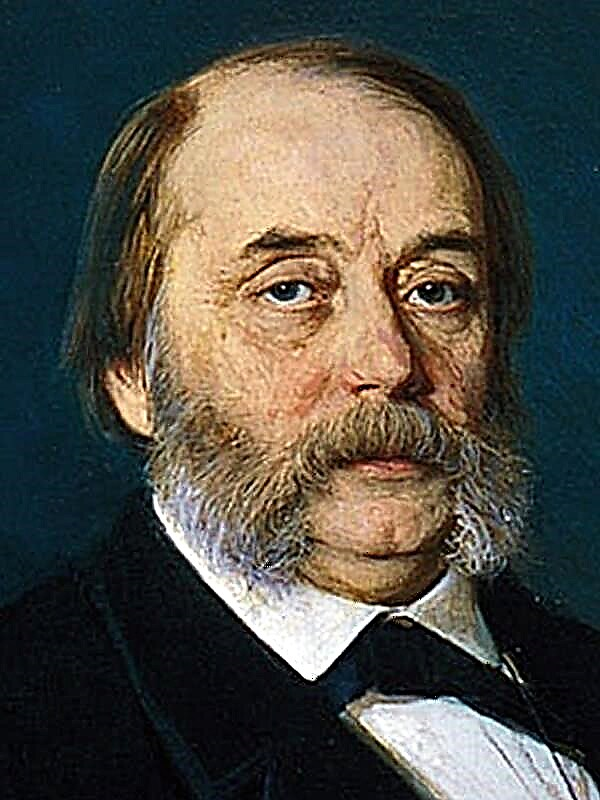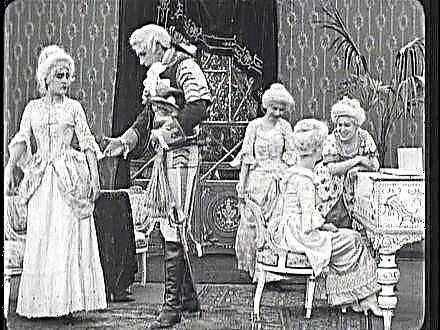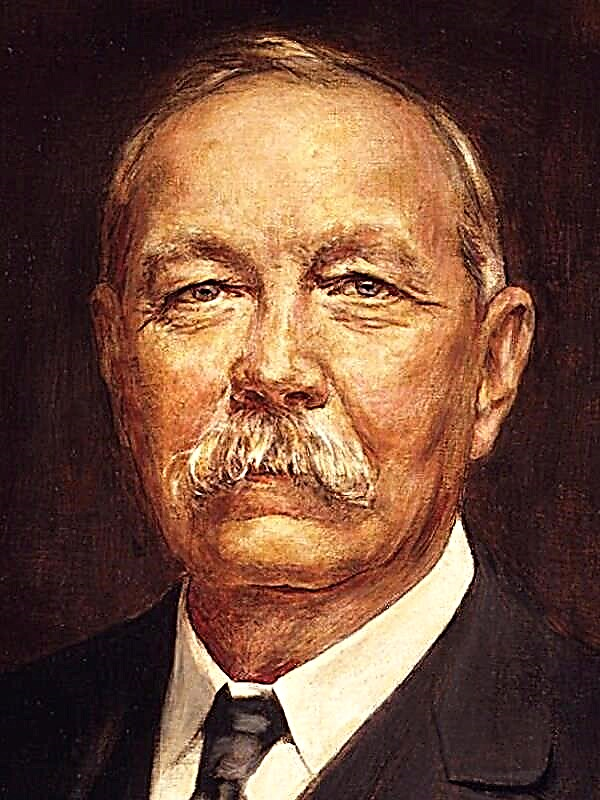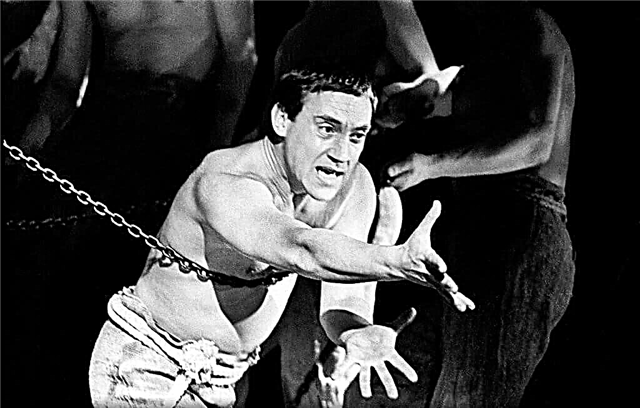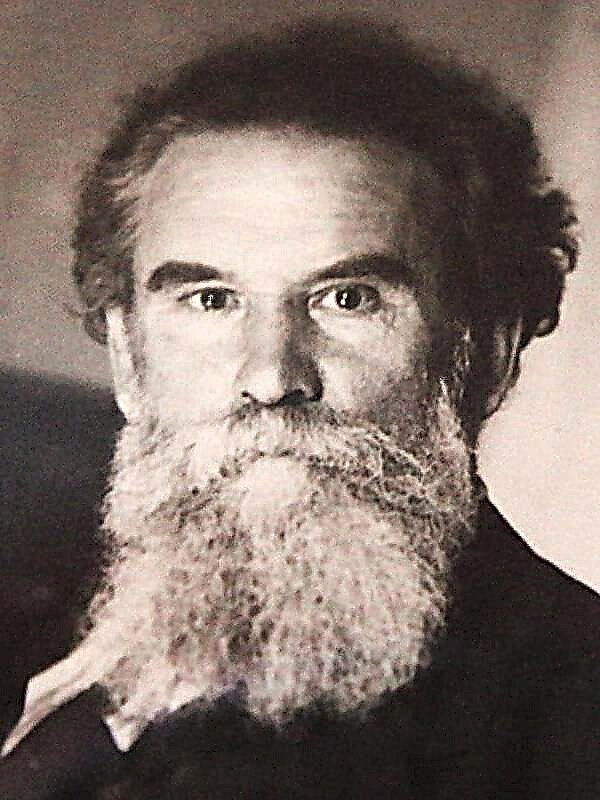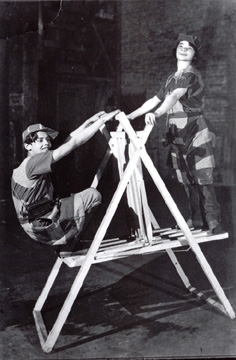The Tale of Siavush
It is said that once in the morning, sometimes the valiant Tus and the famous Giv in battle, accompanied by hundreds of warriors with greyhounds and falcons, galloped to the Dagui plain to amuse themselves with hunting. Having shot game in the steppe, they went to the forest. A girl appeared in the distance. The hunters rushed to her. Before them appeared an unprecedented beauty slim as a cypress. To the question of Tus, who she is, the girl admitted that she left home because of her father, who, while intoxicated, threatened to kill her. In a conversation with her, it turned out that she was from the clan of Shah Feridun. With an expensive crown on her head, riding a horse, she left the house. But the horse fell on the road, exhausted, and she was stunned and robbed by robbers.
The girl fell in love with both fellows, and a fierce debate broke out between them over whom she would get. They decided to bring him to the court of the lord of Iran, Kay Kavus, and he said that such a beauty is worthy only of the sovereign. The girl was seated on the throne and crowned with a crown. When the time came, the young queen gave birth to a son of extraordinary beauty. They called him Siavush. The baby grew up among the palace luxury. Once, a mighty Rostem came from Zabul. Noticing a frisky prince at the court, he asked the shah to entrust him with the education of a lion cub. The Shah did not see a reason for rejection. Rostem took Siavush to Zabul, where, under the supervision of the illustrious knight, he was introduced to the palace life, received the education necessary for that time, and surpassed all his peers in the military business.
The time has come for Rostem's pupil to return to his homeland. The messengers brought Kay Kavus, the prince’s father, good news. The Shah ordered his commanders Tus and Giva to ride towards the heir. The lord of Iran was proud of his son and prayed for him in heaven. A magnificent feast was organized on the occasion of the return of the prince.
Suddenly, misfortune crept up to Siavush: the beloved mother died. A little time passed, as the other wife of his father, Sudabe, fell in love at first sight with a young handsome man. Endless persecution began. Sudabe repeatedly lured the young man to his palace, but in vain. Sudabe decided on a very risky step - she complained to her husband about the allegedly heartlessness and inattention of his stepson, who ignores not only her but also his sisters and, despite repeated invitations, has never honored them with his visit. Kay Kavus, not suspecting anything, advised his son to be attentive to his stepmother and her daughters, Siavush, fearing to become a victim of the intrigues of Sudab, asked his father to let him search for the company of glorified warriors. The father insisted on his own and for the second time ordered Siavush to visit the sisters. The old servant Hirbed led Siavush to the female chambers. In the palace, the young prince saw unprecedented luxury: the path was strewn with Chinese golden brocade, the throne of pure gold was decorated with precious stones. On the throne, shining with unearthly beauty, sat Sudaba. The queen came down from the throne, bowed low and embraced Siavush. He was embarrassed. The embrace of his stepmother seemed indecent to him. He went to his sisters and spent considerable time with them.
It seemed to the Sudaba that she was already close to the goal, and when she met her husband Siavush was praised. The Shah offered to pick up a bride for his son and arrange a wedding. Sudab decided to marry one of her daughters as a prince. She invited Siavush to her chambers for the second time. As at the first meeting, she met him with a deep bow, seated him on the throne and, as if by chance, pointed at the girls who were not far away, and asked which one he liked best, whom he would choose for his wife. Siavusha was not seduced by such an undertaking. He said nothing. This encouraged his interlocutor. Without embarrassment, she revealed her secret plan, saying: “Yes, the moon does not attract the sun near the sun; take my favor, catch happiness. Take me to the end of my life, I don’t melt my love, henceforth I’m your soul and body! ” Forgetting the shame, she hugged the prince and herds passionately kiss him.
Siavush was afraid to offend her with harshness and embarrassedly said that he was ready to become her son-in-law, and only the lord was worthy of such beauty as she was, and adding: “I am ready to honor you like a sweet mother,” he left the harem of the Shah.
Some time passed, Sudabe again ordered Siavush to call on her and again began to talk about her passion, about how she languishes and languishes from her love for him. Feeling indifference to herself from the side of Siavush, the queen turned to threats, saying: "If you do not submit, you do not want to revive me with young love, I will take revenge on you, deprive you of the throne." Such impudence has infuriated the youth. He answered in his hearts: “There can be no such thing. I am honored dear, I won’t lie to my father ”- and I intended to leave, but the tsarina instantly scratched her Lanites, tore her clothes and began to cry for help. Hearing the scream of his wife, the shah hurried to the harem. The half-naked queen, looking into the angry eyes of the crowned husband, cried out frantically: "Your son, brutalized from passion, tore his clothes on me, whispering that he was full of love fire."
After listening to his wife, the Shah showed prudence. He decided to calmly sort out what had happened and questioned Siavush. He told him how it really was. The Shah took Siavush by the hands, pulled his son to his face and sniffed the curls and clothes, and then, repeating the same thing with Sudabe, he realized that there wasn’t even a trace of the criminal embrace that the queen spoke about. She blamed the innocent Siavush. However, the shah was afraid to punish his wife, fearing a war with her relatives.
Unable to deceive her husband, Sudabe again began to weave cunning intrigues. She called upon the sorceress carrying the child, gave her a potion so that she would have a miscarriage, and she was going to give her fetus as her own, accusing Siavush of killing her child. The sorceress agreed and, having drunk the potion, gave birth to dead twins, whom the queen ordered to put in a golden tub, and she emitted a piercing scream. The lord, learning about the misfortune that befell the queen, became furious, but did not betray his anger. The next morning he came to his wife's chambers and saw alarmed servants and stillborn children. Sudabe shed tears, saying: "I told you about the affairs of the villain."
Doubts crept into the soul of the shah. He turned to the astrologers with a request to justly judge the Queen's accusations. Stargazers worked for a week, and then said that he and the queen were the parents of these children. The tsarina again began to shed tears and ask the shah for justice. Then Vladyka gave the order to find the real mother of these children. The guard soon attacked the witch’s trail and led her to the shah, threatening her with a noose and a sword. She repeated to them in reply: “I know no fault for myself, no!” Stargazers have again confirmed their decision. Sudabe said that Siavush forbade them to tell the truth. To drive away suspicions from himself, the prince decides to pass the test of fire, as the great Zarathushtra ordered. They made a huge bonfire. Flames raged to the cries of the assembled people. Everyone was sorry for the flowering young man.
Siavush appeared and said: “May the heavenly sentence be completed! If I am right, the savior will save me. ” Here a black horse carried Siavush through the fire. Neither the rider nor the horse became visible. Everyone froze, and after a moment they burst joyfully: "A young ruler passed through the fire." Justice has been restored. The Shah decided to execute a liar, but Siavush persuaded him to have mercy on his wife and not torment himself. Kay Cavus became even more attached to his son.
Meanwhile, Shah Afrasyab was preparing for new battles with Iran. Siavush asked his father to allow him to lead the army, saying that he could crush Afrasyab on the shoulder and plunge the heads of the enemy into ashes. The Shah agreed and sent a messenger for Rostem, asking him to be a defense of Siavush in the upcoming war.
To the thunder of the timpani, Tus lined up a army in front of the palace. The Shah handed Siavush the keys to the treasures of the palace and military equipment and placed under his command a army of twelve thousand soldiers. After this, the shah delivered a farewell speech to the army.
Soon Siavush occupied Balkh and sent this good news to his father.
Afrasyab had a terrible dream, as if a whirlwind had flown on his army, overturned his royal banner and tore the cover from the tents. Death mowed the warriors, bodies piled up in a bloody mountain. One hundred thousand soldiers in armor flew in and their leader, like a whirlwind on a horse, tied Afrasyab, rushed faster than fire and threw Kay Kavus at his feet. He furiously thrust a dagger into Afrasyab's chest, and then his own cry aroused him.
Mobed unraveled his dream: “Mighty lord, get ready to see the formidable army of the Iranians in reality. Your power will be destroyed, your native country is flooded with blood. Siavush will drive you away, and if you defeat Siavush, then the Iranians, taking revenge for him, will burn the country. ”
In order to prevent a war, Afrasyab sends with Garcivaz a caravan of rich gifts, a herd of horses and many slaves.When Garcivaz entered the palace, the prince showed courtesy to him and sat at the throne, Garcivaz set out his master’s request for an end to the war.
The young commander Siavush, in consultation with Rostem, decided to accept the proposed peace. The messenger informed Afrasyab about this and added that Siavush was demanding a hundred hostages. The condition was accepted, and Rostem went to Kay Kavusu with the news of the conclusion of peace.
However, the message of Siavush stung the Shah. He was not at all pleased with the decision of Siavush, and he ordered the army to be transferred under the command of Tus, and Siavush himself would immediately return home, calling him "unworthy of the rank of warrior." This offended the wise commander Rostem, who in the presence of the Shah flared up in anger and left the yard.
Siavush poured out his grief to two heroes close to him - Zengu and Bahram - and admitted that he got involved in the war because of the intrigues of his stepmother, but managed to return the country to two richest regions - Sogd and Balkh, and instead of gratitude was humiliated. Siavush angrily returned Afrasyab all the hostages and gifts that the Turans sent him on the day of victory, the army entrusted Bahram, and he decided not to return to his father's house. Soon, his envoy Zenge arrived in Turan to Afrasyab, who gave him a magnificent reception. Upon learning of the decision of Siavush, Afrasyab was shocked. He consulted with the sage Piran, who spoke very flattering about the Iranian prince and suggested that the ruler of Turan accept Siavush as his own son, surround him with honor and give him his wife as his wife, performing the rite.
Afrasyab reasoned as follows: the arrival of Siavush to him is the end of wars; Kay Cavus is decrepit, the end of his speed, the two thrones will unite, and he will become the ruler of a vast country. The will of the lord of Turan was fulfilled immediately. An messenger was urgently sent to Siavush with a friendly proposal on behalf of Afrasyab. The prince arrived in the camp of the lord of Turan with three hundred soldiers and part of the treasury. Kay Cavus was overwhelmed by this news.
The wise Piran met Siavush on the border with great honor, he called him his son, and they went to the capital of Turan. The ruler of Turan, Afrasyab himself, showed the same cordial welcome to the Iranian prince. He, having met the guest with open arms and hot kisses, was delighted and subdued by Siavush and promised that henceforth Turan would faithfully serve him.
Siavush was brought into the palace, seated on a brilliant throne, arranged a grand feast in his honor, and the next morning, as soon as he woke up, they presented him with the rich gifts of Afrasyab. So that the dear guest would not be bored, the courtiers arranged all kinds of games and fun in his honor. By order of the ruler, seven of the most skilled horse-riders were selected for the game, but the guest easily defeated them. The palm went to him both in archery and hunting, where everyone went headed by Afrasyab himself.
Elder Piran took care of the family well-being of Siavush and suggested that he become related to some of the most notable families in the country. The Tsarevich, full of love, said in response: "I want to get married with your family." A magnificent wedding was played. The daughter of Piran Jerry became the first wife of a hero. Near his lovely wife, Siavush temporarily forgot about his stern father Kay Kavus.
A little more time passed, and once the perspicacious Piran said to Siavush: “Although my daughter has become your wife, you were born for a different share. It is fitting for you to intermarry with the lord himself. His daughter Ferengiz is a diamond cherished by his father. ” Siavush obeyed, saying: "If such is the command of the creator, then do not oppose his will." Piran acted as an intermediary. He outlined the desire of the prince to decorate his palace and name his wife the incomparable daughter of the lord of the Ferengis. Shah thought for a moment. It seemed to him that Piran was too zealous, cherishing a lion cub. In addition, he remembered the prediction of the priests who told him that a grandson would bring him a lot of suffering and misfortune. Piran managed to calm the lord and get consent to marry Siavush to his daughter.
Ferengiz dressed up, decorated her curls with flowers and brought to the palace of Siavush. For seven days the fun lasted and music and songs sounded. Seven days later, Afrasyab gifted his son-in-law with jewelry and gave in addition land to the Chin-Sea, on which rich cities were built. The Shah also commanded that he be given the throne and the crown of gold.
At the end of the year, Afrasyab invited Siavush to go around his land to Chin and choose his capital, where he could settle. Siavush discovered a paradise for himself: green plains, forests full of game. Here, in the center of the glorious city, he decided to erect the first palace.
Once, traveling around the district, Siavush turned to the starship: “Tell me, will I be happy in this brilliant city or will grief hit me?” The head of the stargazers said in response: "There is no grace for you in this city."
Piran was brought the order of the lord of Turan, in which he ordered to collect tribute from all the lands subject to him. Piran, having said goodbye to Siavush, went to fulfill a high command.
Meanwhile, rumors spread about the beautiful city - the pearl of the country, which was named Siavushkert. Returning from a campaign, Piran visited this city. He was delighted, marveling at his beauty, and, giving praise to Siavush, handed Ferengiz a crown and a necklace, blinding his eyes. Then he went to Khoten to see the Shah. Having reported to him about his mission, he, incidentally, spoke about the greatness and beauty of the city that Siavush built.
After some time, Afrasyab sent his brother Garcivaz to see the construction and congratulate Siavush on his luck. Siavush went out to meet his squad, embraced the eminent hero and asked about the health of the Shah.
The next morning, the messenger told the good news: a son was born at Siavush. He was called Farid. Piran was jubilant, but Garcivaz thought: “Give me the deadline, and Siavush will ascend over the country. After all, he owns almost everything: the army, and the throne, and the shah’s treasury. ” Garcivaz was greatly alarmed. Returning to the capital, he reported to the Shah how Siavush ascended, how the envoys of Iran, Chin and Rum were coming to him, and warned his brother about the danger to him. The shah hesitated; to believe all this? - and ordered Garcivaz again to go to Siavush and tell him to come immediately to the court.
Siavush was glad to meet with the lord, but Garcivaz slandered Afrasyab and presented the case in such a way that as a result of the machinations of an evil spirit, he became hostile to the hero and burned with fierce hatred towards him. Siavush, remembering the goodness of the lord, nevertheless intended to go to him, but Garcivaz brought more and more arguments. Finally, calling on the scribe, he wrote a letter to Afrasyab, in which he praised him and informed that Ferengiz was weighed down and Siavush was confined to her head.
Shah's brother hurried to Afrasyab to tell another lie that Siavush allegedly did not accept the letter, did not go out to meet Garcivaz and was generally hostile towards Turan and was waiting for Iranian envoys. Afrasyab, believing the intrigues of his brother, set out to lead the troops and put an end to the alleged turmoil.
Meanwhile, fearing for his life, Siavush decides to go with his squad to Iran, but Lord Turana overtakes him along the way. Feeling trouble, the squad of Siavush was ready to fight, but the commander said that he would not stain his kind of war. Garcivaz, on the other hand, was urgently urging Afrasyab to begin the battle. Afrasyab gave the order to destroy the army of Siavush.
True to his oath, Siavush did not touch either the sword or the spear. Thousands of Iranian fighters died. Then the warrior Afrasyaba Garuy threw the lasso and pulled the neck of Siavush loop.
Hearing the black news, the wife of Siavush Ferengiz rushed to her father's feet, begging for mercy.
But the shah did not heed her pleas and drove away, ordering her to be locked up in prison. Killer Garuy grabbed Siavush, dragged him on the ground, and then threw him to the dust with a dagger. Garcivaz ordered the Shah’s daughter to be removed from the dungeon and slaughtered with her batogs.
So the crime happened. And as a sign of this, a whirlwind rose above the earth and overshadowed the heavens.
The Legend of Sohrab
Once Rostem, having awakened a little light, filled arrows with a quiver, saddled his mighty horse Rehsh and rushed to Turan. On the way, he struck onager with a mace, roasted it on a spit from a tree trunk, ate a whole carcass and, having washed down with water from a spring, fell asleep in a heroic dream. Waking up, he called out to the horse, but that trace disappeared. I had to in armor, with arms to wander on foot.
And so the hero entered Semengan. The ruler of the city invited him to be a guest, spend the night drinking a glass of wine and not worry about Rehsh, because he is known to the whole world and will soon be found. The king called on the city and military nobles to meet with Rostem.
Cooks brought food to the pyrotechnic table, while Kravchians poured wine. The singer’s voice merged with sweet-sounding ore. Fluttering beauties dancers dispersed the grief of Rostem. Feeling hungry and tired, he went to the bed prepared for him.
It was already after midnight, when a whisper was heard, the door quietly opened and a slave came in with a candle in her hands, and behind her was a beautiful sun-like cypress, like a sun. The lion's heart trembled hero. He said to her: “Tell me your name. Why did you come at midnight? ” The beauty replied that her name was Tekhmina and that among the kings she had not found an equal to him. “The omnipotent passion eclipsed my mind to give birth to a son from you, so that he was equal to you in growth, strength and courage,” the beauty said and promised to find a frisky Rehsha.
Rostem, delighted with her beauty, calls a mob and tells him to go with a matchmaker to his lord father. The king, observing the law and custom of his ancestors, gives his beautiful daughter for a hero. At a feast in honor of the marriage was invited to know everything.
Left alone with his dear wife, Rostem gives her his amulet, about which the whole world has been heard. Handing it to his girlfriend, the hero said: “If fate sends you a daughter, attach the amulet for good luck to her braid, and if your son - put it on his hand. Let him grow up a mighty daredevil who does not know fear. ”
Rostem spent the whole night with his girlfriend, and when the sun rose, he said goodbye and pressed her to his heart, kissed her lips, eyes and brow with passion. The sadness of parting blinded her gaze, and since then grief has become her constant companion.
In the morning, the Semengan ruler came to ask whether the giant rested well, and informed him of the good news: “Your Rehsh was finally found.”
Rostem went to Zabul. Nine moons passed, and a baby was born, shining like a month. Tehmina called him Sohrab. Posture in Rostem, heroic growth, by ten years, he became the strongest in the region. Having learned about the birth of his son, Rostem sent Takhmina a letter and gifts. She told her son about them and warned him: “O my son, the enemy of your father Afrasyab, the ruler of Turan, should not know about this.” The time came, and Sohrab decided: to collect the army, to overthrow the Shah of Iran Kay Kavus and find his father. He told his mother: "I need a good horse." They quickly found a horse born from Rehsh. The hero rejoiced. Driven by impatience, he immediately saddled him and set off on the road at the head of a huge army.
Soon, the lord of Turan Afrasyab learns about the campaign that has begun. He sends him to meet his two heroes - Human and Barman, partingly resort to tricks, push Rostem and Sohrab on the battlefield, but so that they do not recognize each other. Afrasyab planned with the help of Sohrab to realize two goals: to eliminate the invincible enemy of Turan Rostem and defeat Kay Kavus. To lull the vigilance of the young warrior, Afrasyab generously endowed him by sending him a dozen horses and mules, a turquoise throne with a foot of sparkling ivory, a royal crown burning with rubies and a flattering letter: “When you ascend to the Iranian throne, peace and happiness will reign on the earth . Get the crown of the sovereign in the struggle. I am sending you twelve thousand fighters to help. ”
Sohrab, along with his grandfather, hastened to honor the approaching army and, seeing the big army, was very happy. He gathered an army and led him to the White Fortress - the stronghold of Iran. The ruler of the region and the fortress was the gray-haired Godejem from a glorious Iranian family. His beautiful daughter Gordaferid became famous as a fearless and impudent horsewoman. Seeing the approaching army, the daring Hejir, who led the defense of the city, rode towards him. Sohrab, hitting him with a spear, plunged him to the ground to chop off his head, but Hedjir, raising his hand, prayed for a pardon. Then his hands were tied and taken away. Day faded for the Iranians.
Then the daughter of Godechem dressed in battle armor, hid her braids under a helmet and rushed at the enemy, striking him with a cloud of arrows. Seeing that his soldiers were falling in rows, Sohrab galloped towards the enemy. The warrior, having replaced her bow with a spear, aimed it at the start in the chest of Sohrab. The furious hero threw the rider to the ground, but she managed to jump onto the horse again, suddenly the maid’s braid slipped through the chain mail. Before the hero appeared a young beauty. The hero was surprised: since the maiden is so brave, what kind of men are they ?! He tossed the lasso and instantly embraced the camp of the beauty.
Gordaferid offered him peace, wealth and a castle, saying: “You have achieved the goal! Now we are yours. ” Sohrab let her go, and they went to the fortress. Godezhem with the army was waiting for his daughter outside the city wall, and as soon as she entered the gate, they closed, and Sohrab remained behind the gate. Rising to the tower, the brave Gordaferid shouted to Sohrab: “Hey, valiant knight! Forget about the siege and the invasion! ” Sohrab vowed to take the fortress and punish the daring. It was decided to start the battle in the morning. Meanwhile, Godezhem sent a messenger to the Shah with a letter in which he told about the incident, described in detail the appearance and military merits of Sohrab. He also reported that they are forced to leave the city and retreat deep into the region.
As soon as the sun rose, the Turans closed the ranks of the troops, following their knight, broke into the fortress like a tornado. The walled city turned out to be empty. Godezhem led the soldiers through an underground passage, which the Turans had not known before. Residents of the region appeared before Sohrab, asking for mercy, and swore obedience to him. But Sohrab did not heed their words. He began to look for Gordaferid, who stole his heart, flashed like a peri and disappeared forever. Day and night grieve the hero burned by secret fire. The envoy Afrasyaba Human, noting what was happening with Sohrab, tried to turn his thoughts to war. He told him: “In the old days, none of the lords fought in captivity with passion. Do not cool the heat of your heart - wait for inglorious defeat. " Sohrab understood the correctness of Human.
Meanwhile, Kay Cavus, receiving a message from Godehem, was very alarmed and decided to call Rostem for help. He sent to the hero of the noble Giva with a message. Rostem did not doubt his victory in the upcoming battle and continued to feast. Only on the fourth day did he come to his senses and signaled the army to gather. Rahsh was immediately saddled. Everyone moved to the palace, galloped and bowed their heads in front of the shah. Kay Cavus did not answer their greeting. He was outraged by the impudent act of Rostem and ordered in his hearts to execute him. The bogatyr glanced menacingly at the shah and covered him with abuse, whipped the steed and rushed off. She intervened in the matter, persuading the shah to return Rostem, remembering his merits, that Rostem had repeatedly saved his life. The shah ordered the commander to be returned, reassured and pacified. He publicly promised Rostem his royal blessing. On the joys of reconciliation, a feast was arranged, and the next day it was decided to speak.
As soon as the sun rose, Kay Cavus ordered a loud beat in the timpani. The troops were led by Give and Tus. One hundred thousand selected fighters, dressed in armor, left the city on horseback and camped in front of the White Fortress. Sohrab, ready for battle, rode on his frisky horse, but before that he had asked the captive Hedir to show him the famous Iranian commanders, including the mighty Rostem, for the sake of meeting with whom he started the war. But the insidious Hedger cheated him, saying that Rostem was not in the camp of the Iranians. Frustrated Sohrab had no choice but to accept the battle. He jumped on his horse and violently rushed into battle. In front of the shah's tent, prancing on a frisky horse, he challenged the enemy. The Shah's warlords did not even dare to look at the hero. The posture of the hero, the deadly sword in his strong hands plunged them into gloom; embraced in confusion, the army broke up. They began to whisper: “This hero is stronger than a tiger!” Then Sohrab began to call the Shah himself, taunting him.
Crowned Cay Kavus called on the soldiers to hastily help Rostem put on his armor and clothe his horse. Here he is already on a horse and with a war cry rushing to meet with Sohrab. The heroic appearance of the enemy delighted the experienced warrior. The heart of Sohrab also trembled; hoping to see his father in him, he exclaimed: "Tell me your name and say whose family you are, I think that you are Rostem, to whom the great Neyrem is great-grandfather." alas, disappointment awaited him. Rostem hid his name, calling himself a humble warrior.
The battle began with short spears, but soon debris remained from them. Then the swords crossed. In a hot battle, swords broke, clubs were bent, chain mail cracked on the shoulders of opponents. The forces were exhausted, but no one got the victory. They decided to leave, stopping the battle. Each was surprised by the strength of the other.
The horses had already rested, the rivals again converged in battle. This time, arrows were fired, but Sokhrab's armor could not be broken, and the skin of the leopard on Rostem remained intact. Hand-to-hand combat began. Rostem grabbed Sokhrab by the belt, but the daredevil in the saddle did not flinch. The battle lasted a long time, the forces ran out, and the opponents parted again, so that, gaining strength, rush into battle.
Anxiety and doubt did not leave Sohrab. The thought of his father depressed him, and most importantly, an inexplicable force pulled him to Rostem, with whom he waged a mortal battle. Before the new fight, Sohrab again turned to the giant: “What was your dream and your awakening? Isn’t it better to quell anger and throw the blade? Isn't it better to feast together for us? "Do not hide your name, maybe you are the leader of Zabulistan Rostem?"
But Rostem did not think about friendship with a young man whose milk on his lips had not dried up and had not seen his son in Sohrab. Again a war cry rang out, and the enemies converged on the battlefield. Rostem grabbed Sohrab by the neck, drew his sword and cut open his chest. Sohrab fell to the ground, sprinkling it with blood, and fell silent with the name of Rostem on his lips. Rostem was numb, white light faded before his eyes. Recovering, he asked: “Where is the sign from Rostem?” The young man whispered: “So, then it is you? .. I called you, but your heart did not tremble. Unfasten the chain mail on my chest and you will find my amulet under it. ”
Seeing the amulet, Rostem clung to the dying young man: “O my dear son, valiant hero, have you really destroyed me?” The srab, with bloodied lips, whispered: “Don’t pour tears in vain. Your tears are harder for me than mortal torment. What good is killing you now? It is evident that fate was pleased. ” Rostem jumped on Rehsh and, sobbing, appeared before his army. He told them how evil he had been, and added: "You can’t go to the Turans by war, it’s pretty evil for them that I did it." He grabbed the sword and wanted to cut his chest, but the soldiers stopped him. Then he asked Goders to jump to the shah and tell him about his grief and ask him to send a healing potion, which is stored in his fortress. However, Kay Cavus decided differently: "If he saves his son, my kingdom will crumble to dust." Goders returned with nothing. Having wrapped Sohrab in a brocade cloak, Rostem was about to go to the shah, but, barely lifting his foot in the stirrup, he heard Sohrab let out his last breath,
Tears streamed from Rostem's eyes with a stream. There is no greater grief than becoming a murderer in old age.
“What will I say if my mother asks about a young man?” He thought bitterly. By the will of his father, the body of Sohrab was covered with crimson, as a sovereign. At the request of Rostem, Kay Kavus promised to put an end to the bloody war with the Turans. Struck by grief, Rostem remained in place to wait for his brother, who was supposed to hold the Turans and protect him from various troubles on the way.
At the dawn, Rostem and his squad went to Zabulistan. People met him in deep sadness. Know sprinkled ash on her head. The coffin was brought under the vaults of the chamber and with loud sobs was lowered into the grave. There was no end to the grief of the mother who lost her only son, and only a year later she went to the grave after him.



